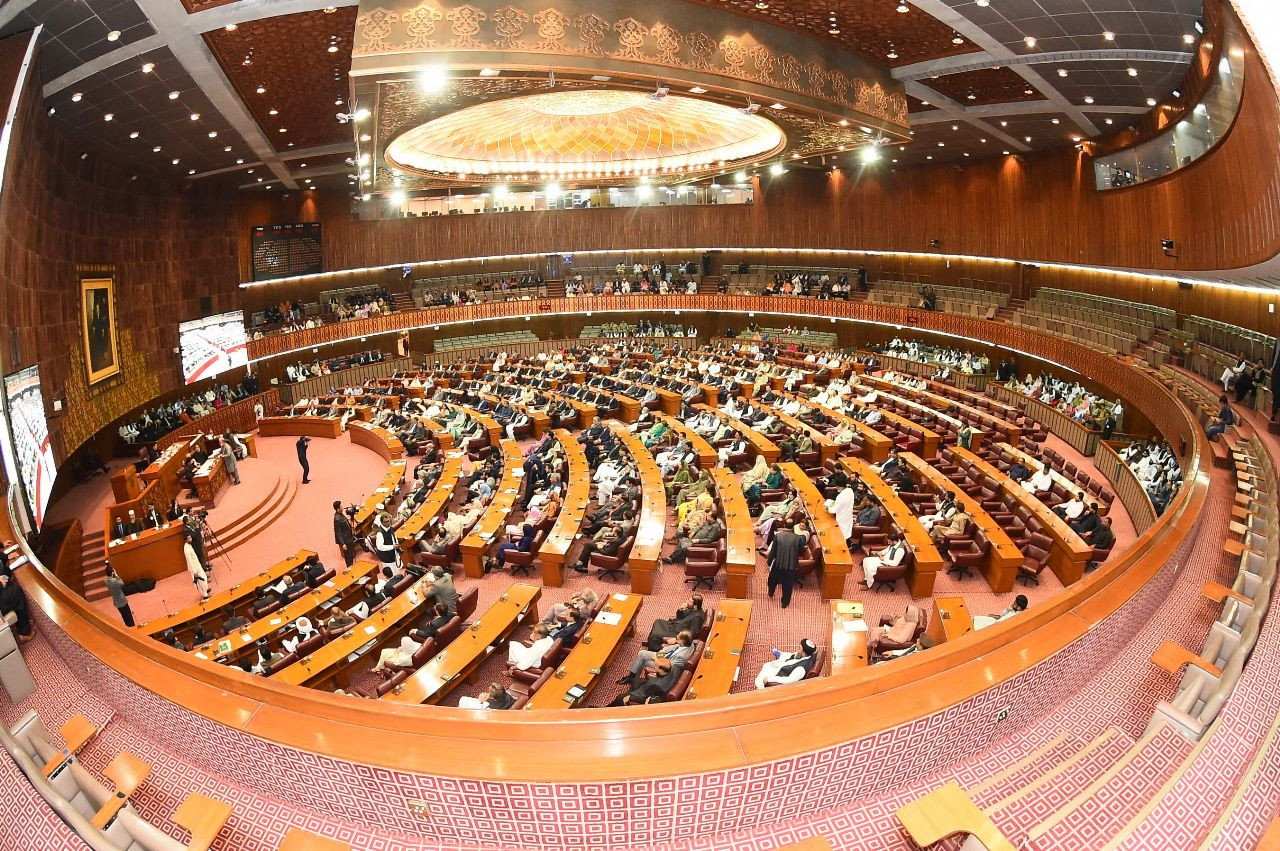
Eight bills, including the National Accountability Amendment Bill 2023 related to increasing the powers of the anti-graft chief, were passed by the joint session of the parliament on Monday.
The joint session of parliament was chaired by National Assembly (NA) Speaker Raja Pervaiz Ashraf, where the National Accountability Amendment Bill 2023 was approved while the amendments of Jamaat-e-Islami (JI) in the NAB law were rejected.
Seventeen sections of the NAB Act have been amended. After the approval of the NAB law by the joint session, all pending inquiries which are intended to be transferred under sub-section 3 will be considered by the NAB chief.
The chairman will be authorised to refer all such inquiries to the relevant agency, institution, or authority through the new amendment in the NAB law and if the NAB inquiry is not satisfied, the chairman will send the case to the relevant court for approval for the release of the accused.
Upon receiving the inquiry from the NAB chairman, the concerned agency authority or department will be authorised to conduct a further inquiry under Clause A, B.
If the court is not satisfied, any case can be returned to the relevant institutions, agencies, or authorities with the help of NAB. According to the NAB law, upon the return of the case from the NAB court, the relevant department or authority can prosecute the case according to its own laws.
The cases decided before the Accountability Amendment Act 2022 and 2023 will remain in force until they are withdrawn. After the new amendment, any court or agency shall be empowered to record or re-record old or new witnesses under its respective laws for further proceedings on the case returned to the forum or agency.
All pending inquiries, investigations, and trials under Section 5 of the NAB Act and further proceedings can only be conducted under the rules of the concerned institutions.
Read All institutions accountable to parliament: speaker
In the absence of the NAB chief or incapacity for any reason, the deputy chairman shall be authorised to take over the responsibilities.
In case of the non-availability of the deputy chairman for any reason, the federal government shall be authorised to appoint one of the senior officers of NAB as acting chairman.
Earlier, Law Minister Azam Nazeer Tarar presented the amendments to the National Accountability Bureau (NAB) law and said that it is very painful that the president wrote in a letter that the matter is under hearing in the Supreme Court (SC), therefore, the legislative body should not enact legislation.
He said that no institution has the authority to stop the power of the upper house to legislate, to impose restrictions on it, or to say that this legislation should not be enacted.
He said that the president is a part of the parliament and he does not understand the powers given in the Constitution, that the powers of the House are absolute and unique, on which there is no restriction whatsoever.
Regarding the NAB amendments, he said that when these amendments were approved by the NA and the Senate, it was explained that they are procedural in nature.
When the cases came out of the jurisdiction of NAB, there were some problems to send them to the relevant forum.
He said that it was also to be seen that if the reference is returned from the court, the role of the court should be on it so that the powers given by the judiciary regarding the distribution of powers in Article 175 are not interfered with.
The joint session also passed the Organ Transplantation Amendment Bill; Trained Paramedical Staff Facility Bill, 2019; Day Care Centres Bill, 2019; Maternity and Paternity Leave Bill, 2020; Criminal Laws Remediation of Electronic Crimes Amendment Bill and The Relief Amendment Bill 2022.
Later, the joint session of the parliament was adjourned till July 10.


















COMMENTS
Comments are moderated and generally will be posted if they are on-topic and not abusive.
For more information, please see our Comments FAQ